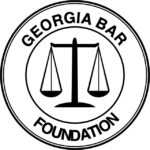Criminal and Constitutional Law
Criminal and Constitutional Law (CCL) Course
This optional advanced course for several pathways provides an overview of constitutional and criminal law. Students will learn fundamental concepts and skills relevant to understanding the interaction between constitutional and criminal law, as well important concepts in our criminal justice system. Topics include the bill of rights, sources of law, legal research and writing, substantive criminal law, the US court system, mock trials, and more.
Below is our new suggested course and support material.
Instructional Plans & Resources
LAPSEN Unit Plans
LAPSEN has a complete course (120-150 hours) of CCL unit lesson plans available to all educators due to a generous grant from the Georgia Bar Foundation – Click Here to access these
Other Lesson Plan Sources
California Educators Together– The great state of California has an insane amount of resources and lessons. Be sure to search with different key words. You do have to have an account – but they give them to all teachers: Click Here
Texas CTE Lesson Plans – They have some materials for Law & Public Safety: Click Here
Courts and Trials – Instructional support page from LAPSEN: Click Here
MicroCredentials (MC) for this Course
All MicroCredentials are being developed and should be ready in soon.

Criminal & Constitutional Law (CCL) Course Standards
Click Here to open the CCL standards document.
Section 1: Exploring Law in America
Objective 1: Describe the various careers available in the legal field
Objective 2: Demonstrate job interview skills and interview preparation steps
Objective 3: Demonstrate an understanding of ethical responsibilities in the legal field
Section 2: Sources of law
Objective 1: Describe sources of legal authority in the United States
Objective 2: Analyze sources of legal authority in the United States
Section 3: The Court System
Objective 1: Differentiate federal courts vs state courts
Objective 2: Describe the role and jurisdiction of state courts
Objective 3: Describe the role and jurisdiction of federal courts
Objective 4: Explain how case law is created and describe examples of important case law
Section 4: Introduction to the Bill of Rights
Objective 1: Describe important constitutional rights that apply to legal cases
Objective 2: Explain how constitutional rights apply in a trial setting
Objective 3: Describe constitutional rights that apply in criminal cases
Section 5: Constitutional Law and Criminal Justice
Objective 1: Explain how Fourth Amendment rules govern searches of property and persons
Objective 2: Describe how Fourth Amendment rules govern arrests and stops
Objective 3: Explain interrogation standards that are based on the Fifth Amendment
Objective 4: Apply constitutional law to law enforcement scenarios to determine whether government conduct is lawful
Section 6: Crimes and Crime Elements
Objective 1: Describe how crimes are classified and differentiated
Objective 2: Explain what crime elements are and identify them in statutes
Objective 3: Describe the elements required to prove common criminal charges and defenses
Objective 4: Apply criminal law statutes to fact patterns to determine if a crime has been committed
Section 7: Mock trials to enhance legal analysis, writing, and communication
Objective 1: Describe the mock trial process and legal documents contained in a mock trial case
Objective 2: Analyze case materials to determine what information is relevant to proving a case, including a differentiation of helpful and harmful information
Objective 3: Draft witness examination questions and answers using professional language and grammar
Objective 4: Demonstrate substantive trial skills in an organized and professional manner
Objective 5: Analyze and interpret legal documents and laws to develop legal arguments and conclusions
Objective 6: Convey relevant legal information in an organized and cohesive opening statement or closing argument
Objective 7: Present a well organized trial presentation that utilizes professional language and focuses on satisfying all applicable legal standards
Section 8: New and emerging areas of the law
Objective 1: Explain the law surrounding emerging issues in constitutional and criminal law.
The lesson plans for the legal services pathway were created, in part, from a generous grant from the
Georgia Bar Foundations’ IOLTA Grant.
